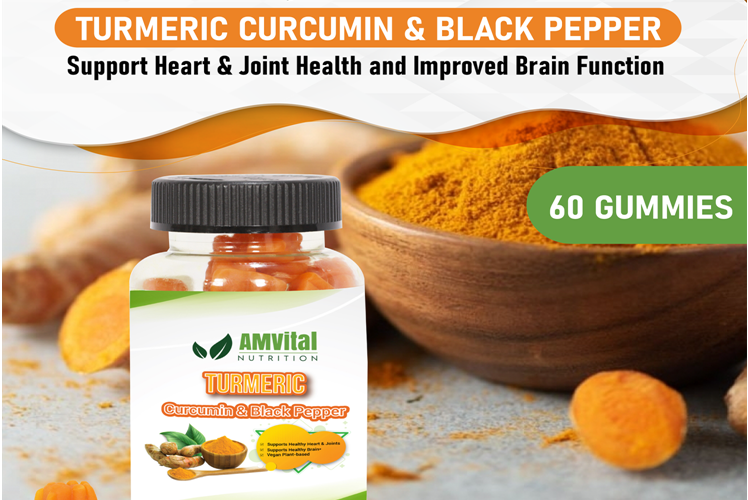Introduction
Turmeric gummies may be the latest trend in natural medicine, but they’re not all they’re cracked up to be. Turmeric is a bright yellow spice that comes from the root of a plant, but it’s not just used for cooking: It’s been used as medicine for thousands of years. The compound curcumin, found in turmeric root extract, has antioxidant properties and may help treat several conditions including joint pain, heart disease and depression. However, there haven’t been many studies done on turmeric’s effectiveness as an anti-inflammatory or treatment for other illnesses; more research needs to be done before we can definitively say that this natural remedy will cure all your ailments!
People are trying turmeric gummies to help their immune systems.
Turmeric is a natural anti-inflammatory, and people are using it to help their immune systems. Turmeric gummies are being used as a convenient way to get turmeric into the diet.
Some people think that the health benefits of turmeric gummies may be similar to those of turmeric powder, but others disagree. In some cases, consumers report side effects such as upset stomachs after taking these supplements. It’s important for you to speak with your doctor before beginning any treatment program involving supplemental herbs or medications. If you do decide to try these supplements yourself and experience negative side effects, talk with your doctor about whether they should continue taking them or stop altogether
Turmeric can help people with joint pain, and boost their heart health.
Turmeric is a powerhouse anti-inflammatory. It can help your body fight off joint pain, and it may also boost heart health.
Turmeric may help with joint pain. A study from April 2019 found that people who took turmeric supplements for 12 weeks had less pain in their knees than those who didn’t take them (1). And another study from the same month found that people who took over-the-counter supplements containing turmeric improved more than those who took placebo pills (2). Turmeric has also been shown to improve symptoms of osteoarthritis in mice (3).
Curcumin gummies supplements may also help lower blood pressure and cholesterol levels in some people; one study found that daily doses of curcumin caused an average drop of 9 points in systolic blood pressure among participants with borderline hypertension after three months (4). Another study found that taking turmeric could lower levels of LDL cholesterol by 8 percent after six months (5), while yet another showed significant reductions among participants with high triglyceride levels after 12 weeks (6).
Curcumin, a powerful antioxidant, is found in turmeric.
Antioxidants are substances that can help prevent or delay the development of certain diseases. They do this by neutralizing free radicals, which are unstable molecules produced during normal cellular activities like metabolism. Free radical damage can lead to cell mutations and cancer, so it’s important to have a steady supply of antioxidants in your body (1).
Curcumin is an antioxidant found in turmeric and has been linked to several health benefits. For example, some studies suggest that curcumin may help prevent or delay the onset of various conditions including Alzheimer’s disease and diabetes (2). Turmeric gummies (and other foods high in curcumin) may be beneficial for other reasons too: they can help reduce inflammation throughout the body (3), support brain function (4) and promote overall cardiovascular health(5).
Turmeric can help those who have suffered from a stroke or heart attack.
Turmeric is a spice that has been used for centuries to treat a variety of health conditions. While it can’t replace medications, it may help reduce inflammation and boost the immune system.
Turmeric is known for its anti-inflammatory properties, which can help those who have suffered from a stroke or heart attack. Because turmeric helps prevent blood clots, it may also help to prevent heart attacks by keeping arteries from narrowing and hardening. In addition, turmeric has been shown to lower cholesterol levels as well as blood sugar levels in people with diabetes.
Turmeric may lower cholesterol.
Cholesterol is a waxy substance found in the body, and it’s essential for health. However, too much cholesterol can build up in the arteries and cause blockages that lead to heart disease—the number one killer of men and women in America.
Cholesterol is a risk factor for heart disease, so lowering your levels can reduce your risk of developing it. The best way to do this is by eating a healthy diet that includes lots of fruits, vegetables, whole grains, lean proteins, fish/shellfish and low-fat dairy products while avoiding saturated fat from red meat or trans fat found in processed foods like potato chips and cookies. If you have high cholesterol already (understandable if you’re reading this article), turmeric may be able to help lower it even further—making turmeric gummies an interesting option for people battling high cholesterol levels who want an alternative treatment option besides medication or surgery
Turmeric can help relieve osteoarthritis pain.
Turmeric is an ancient spice that’s been used as both a food and as a medicine for thousands of years. In recent years, researchers have been studying turmeric more closely. They’ve found that it may help relieve pain caused by osteoarthritis.
In one study, participants took either 1 gram of curcumin or placebo every day for three months. The group taking curcumin saw a significant decrease in pain, compared to the group taking placebo (15).
Turmeric also seems to work when taken with other medications. In another study, researchers gave people with osteoarthritis either Vioxx (an NSAID drug) or diclofenac sodium combined with 2-4 grams of curcumin daily for 12 weeks (16). This combination was about equally effective at reducing joint swelling and discomfort compared to just taking the NSAID alone; however, this combination has not been tested in humans yet—more research is still needed before we can say for sure whether it’s safe or effective long-term
Turmeric may be good for the brain and help with depression.
You might want to try turmeric gummies supplements if you suffer from depression.
Research shows that curcumin, the active ingredient in turmeric, may help with depression. In particular, it could work by reducing inflammation and oxidative stress in the brain. It’s also been shown to have antidepressant-like effects in mice, as well as possibly improving cognitive function and increasing neurogenesis (the birth of new neurons).
We know that inflammation is a key driver of multiple diseases including cardiovascular disease, Alzheimer’s disease and arthritis. If you’re suffering from any of these conditions then it would make sense for you to consider adding curcumin into your diet on top of other treatments for those conditions such as taking aspirin regularly or exercising regularly (for example).
Turmeric may be good for your skin.
Turmeric is also thought to be useful for treating acne, psoriasis, eczema and rosacea. It can help reduce inflammation in your skin and has even been proven to help with the aging process.
Although turmeric has been used as medicine for centuries, there haven’t been many studies done on its effectiveness.
Although turmeric has been used as a medicine for thousands of years, there haven’t been many studies done on its effectiveness. That’s a problem, because there aren’t really any clinical trials to tell us if turmeric gummies are safe or effective. The market for these products is growing rapidly; but without scientific research on the topic, you’ll have to decide whether or not it’s worth taking the risk.
More research needs to be done before we can definitively say that the compounds in turmeric will cure disease.
A lot of research needs to be done before we can definitively say that the compounds in turmeric will cure disease. This is because there are many factors that could affect how well it works, including:
- Whether or not the person taking it has been diagnosed with a specific condition (for example, rheumatoid arthritis)
- How often they take it and for how long
- The amount of turmeric they consume each day or week
In addition to these variables, studies need to be conducted on a large scale before they can be considered conclusive. They also must take into account what other medications may have been used by patients in order to understand how much of their recovery was due specifically to using turmeric versus other factors like medication adherence or exercise regimes.
Conclusion
The evidence for turmeric is inconclusive. There are many studies that show the benefits of curcumin and the compounds in turmeric. However, there isn’t enough evidence yet to say that they will cure disease or be effective against certain illnesses. So far, studies have shown that curcumin may help prevent cancer growth and slow down inflammation in people who have arthritis pain or heart problems. Studies have also shown that some types of turmeric extracts like AMVital supplements can help with depression symptoms by boosting levels of serotonin, a hormone found in our brains linked with happiness.”

